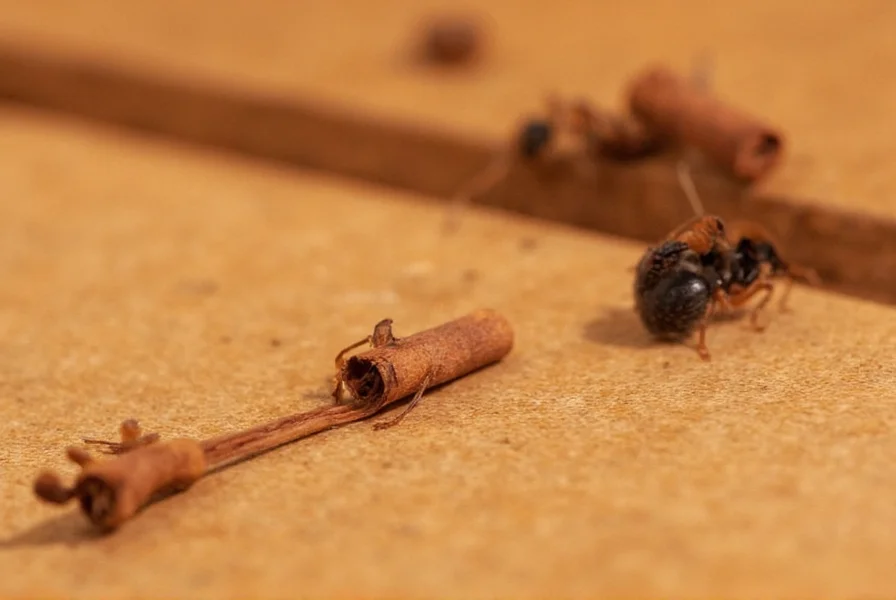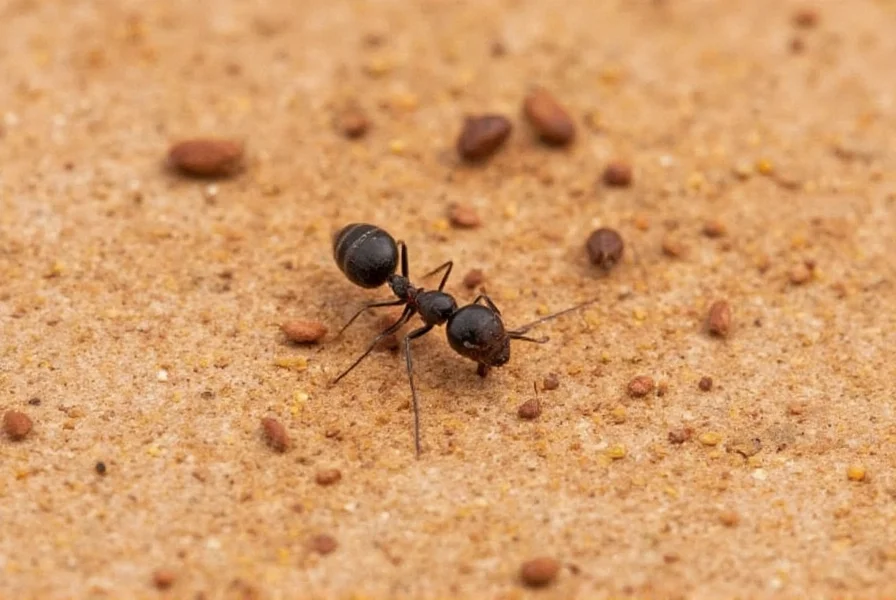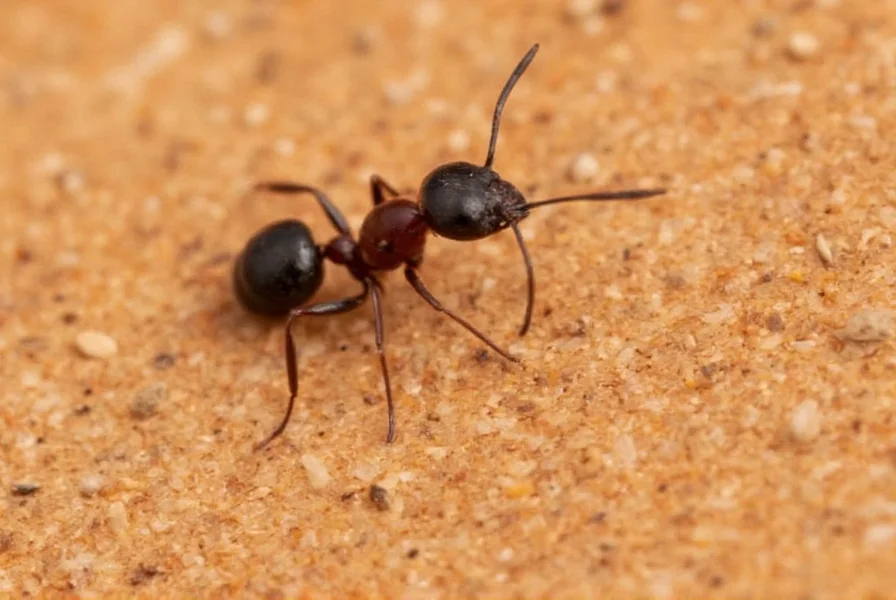Yes, ants are repelled by cinnamon, but not because they "hate" it. Scientific research shows that cinnamon's strong scent and chemical compounds disrupt ants' pheromone trails and sensory receptors, causing them to avoid treated areas. While effective as a natural deterrent for minor ant problems, cinnamon is not a permanent solution for serious infestations and works best when combined with other prevention methods.
Homeowners seeking natural pest control solutions often wonder about cinnamon's effectiveness against ants. Unlike chemical pesticides, cinnamon offers a non-toxic approach that's safe around children and pets. This article examines the scientific evidence behind cinnamon's ant-repelling properties, explains why it works, and provides practical guidance for using it effectively in your home.
The Science Behind Ant Behavior and Repellents
Ants navigate primarily through chemical communication, following pheromone trails laid by scout ants to locate food sources. These tiny insects have highly sensitive antennae that detect even minute chemical signals. When these communication pathways are disrupted, ants become disoriented and avoid the area.
Cinnamon contains cinnamaldehyde and other volatile compounds that interfere with ants' sensory systems. Research published in the Journal of Economic Entomology demonstrates that certain essential oils, including cinnamon oil, effectively repel common household ants by masking their trail pheromones and creating barriers ants won't cross.
Cinnamon Types and Their Effectiveness
Not all cinnamon products work equally well against ants. The effectiveness depends on concentration and application method:
| Cinnamon Type | Ant-Repelling Effectiveness | Application Tips |
|---|---|---|
| Cinnamon essential oil | High (most effective) | Dilute with water (10-15 drops per ounce) and spray along entry points |
| Ground cinnamon powder | Moderate | Sprinkle in lines at entry points; replace when scent fades |
| Cinnamon sticks | Low | Place near windows; limited effectiveness for active infestations |
| Commercial cinnamon sprays | Variable | Check concentration; many contain insufficient active ingredients |
How to Use Cinnamon as a Natural Ant Deterrent
For cinnamon to work effectively against ants, proper application is crucial. Simply sprinkling random amounts won't create the continuous barrier ants refuse to cross. Follow these evidence-based methods:
Create physical barriers: Sprinkle ground cinnamon in continuous lines (¼ inch thick) along windowsills, door thresholds, and any visible entry points. The barrier must be unbroken, as ants will find gaps in inconsistent applications.
Use cinnamon oil spray: Mix 10-15 drops of cinnamon essential oil with one ounce of water in a spray bottle. Apply to ant trails and entry points. Reapply every 2-3 days or after cleaning, as the scent dissipates over time.
Combine with other natural repellents: For enhanced effectiveness, combine cinnamon with other natural deterrents like black pepper, coffee grounds, or citrus peels. Research shows that multi-ingredient barriers work better than single-ingredient approaches.

Limitations of Cinnamon for Ant Control
While cinnamon works as a natural deterrent, it has important limitations homeowners should understand:
- Temporary solution: Cinnamon's scent fades within days, requiring frequent reapplication
- No colony elimination: It repels but doesn't kill ants or destroy nests
- Weather sensitivity: Rain or cleaning removes cinnamon barriers
- Species variation: Some ant species show less sensitivity to cinnamon
- Severe infestations: Not effective for large or established colonies
A 2022 study in the Journal of Pest Science found that while cinnamon oil repelled 78% of Argentine ants in laboratory conditions, its effectiveness dropped to 45% in real-world home environments after 72 hours. For persistent ant problems, integrated pest management combining multiple approaches yields better results.
When to Consider Professional Pest Control
Cinnamon works well for minor ant issues, but certain situations require professional intervention:
- Ants nesting inside walls or structural elements
- Visible ant colonies with hundreds of workers
- Ants returning within 24 hours of cleaning and applying deterrents
- Presence of carpenter ants or other destructive species
- Ant activity persisting through multiple seasons
For serious infestations, professional pest control technicians can identify nest locations and apply targeted treatments while minimizing chemical exposure in living spaces.
Safety Considerations for Natural Ant Control
One advantage of using cinnamon for ant control is its safety profile compared to chemical pesticides:
- Non-toxic to humans and pets when used appropriately
- No harmful chemical residues on surfaces
- Safe to use in kitchens and food preparation areas
- Environmentally friendly with no groundwater contamination risk
However, cinnamon essential oil can cause skin irritation in sensitive individuals and should be kept away from eyes. Ground cinnamon creates airborne particles when applied, which may trigger respiratory issues for people with asthma or allergies. Always test a small area first before widespread application.

Complementary Natural Ant Prevention Strategies
For best results, combine cinnamon with these evidence-based prevention methods:
- Seal entry points: Use caulk to close cracks larger than 1/16 inch
- Eliminate food sources: Store food in airtight containers and clean spills immediately
- Fix moisture problems: Repair leaks and reduce humidity where ants nest
- Use vinegar solutions: Wipe surfaces with 50/50 vinegar-water mix to erase pheromone trails
- Maintain outdoor areas: Trim vegetation away from building foundations
Research from the University of California's Statewide Integrated Pest Management Program confirms that combining multiple natural deterrents creates more effective ant control than relying on a single method.
Frequently Asked Questions
Does cinnamon kill ants or just repel them?
Cinnamon primarily repels ants rather than killing them. The compounds in cinnamon disrupt ants' sensory systems and pheromone trails, causing them to avoid treated areas. While high concentrations of cinnamon oil might kill some ants on direct contact, its main function is as a deterrent, not an insecticide.
How long does cinnamon last as an ant repellent?
Ground cinnamon typically remains effective for 2-3 days before needing reapplication, as the scent dissipates over time. Cinnamon oil solutions last slightly longer (3-5 days) but still require regular maintenance. Effectiveness decreases faster in high-traffic areas, after cleaning, or when exposed to moisture.
Which ant species are most affected by cinnamon?
Research shows that common household ants like Argentine ants, odorous house ants, and pavement ants are most sensitive to cinnamon's repellent properties. Carpenter ants and fire ants show more variable responses, with some studies indicating reduced effectiveness against these species. The effectiveness varies based on the ant species' specific sensory biology.
Can I use cinnamon to prevent ants from entering my garden?
Yes, cinnamon can help deter ants in garden settings. Sprinkle ground cinnamon around plant bases or create barriers between garden beds and potential ant pathways. However, outdoor use requires more frequent application due to weather exposure. For garden ants farming aphids, combine cinnamon with other methods like introducing beneficial insects for better results.
Is cinnamon safe to use around pets?
Cinnamon is generally safe around pets when used in typical household amounts for ant control. However, essential oil concentrations should be diluted properly, as undiluted oils can irritate pets' skin or respiratory systems. Keep pets away from freshly applied cinnamon until it settles, and avoid using near pet food or water bowls to prevent accidental ingestion.











 浙公网安备
33010002000092号
浙公网安备
33010002000092号 浙B2-20120091-4
浙B2-20120091-4